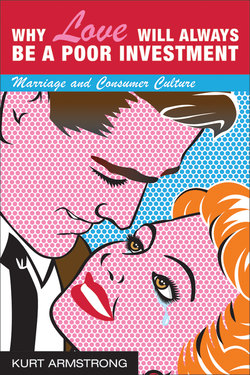Читать книгу Why Love Will Always Be a Poor Investment - Kurt Armstrong - Страница 4
На сайте Литреса книга снята с продажи.
ОглавлениеForeword
by Aiden Enns
My first significant encounter with Kurt Armstrong
was through a piece of writing in Geez magazine, where I was working as an editor. Called, “To do this week,” the article detailed the myriad imperatives to improve our lives.
He revealed the absurd level of daily obligations faced by well-meaning consumers: “Eat more leafy greens and fibrous vegetables. Eat fresh fruit. Eat only certified-organic fresh fruit. Eat only locally grown, certified-organic fresh fruit. Eat less carbs, less red meat, less chemical-saturated, processed junk food. Eat less. Eat either more or fewer eggs depending on what they tell you is healthier this month.”
In Kurt’s writing we see an amazing ability to observe and articulate, both of these are gifts to readers who yearn to understand and live meaningful lives in a culture strewn with banalities.
Following the publication of this article, Kurt, Erika, and their two kids, Molly and baby Jack, moved to the prairies and spent the next year crammed in a tiny, wood-heated, no-bedroom cabin. It was an experiment in living, about which he wrote for us several times. It was also, no doubt, a test of fire for their marriage.
In the dead of winter, my partner Karen and I drove out to visit this crazy homesteader and his family. I wanted to witness this exercise in living directly with the elements. I saw the fruit of a summer harvest in jars on a shelf near the ceiling and the fuel from the forest chopped and stacked outside their abode.
At that time, Kurt asked me how an eager writer might become an insider at Geez magazine. My response was simple, “Hang around and make yourself useful.” Which is exactly what he did. The next year they moved to Winnipeg, and he eventually became a veteran on our team of section editors.
I was impressed with Kurt when I mentioned my anxiety of getting older and having few resources for retirement (by North American middle class standards we have a low income, plus we elected to have no children). “Aiden,” he quickly replied, “you and Karen can come over and live with us. We’ll take care of you.” In the years since that seemingly flippant response, he’s affirmed the sincerity of the offer and is now part of our community.
Kurt and I differ on many things. For example, we have different answers to questions about marriage, such as Who should get married to whom? and, Can we even redeem marriage from is patriarchal roots? But we agree on foundational things, such as the need for self-giving love (especially among men) and a commitment to work through conflict.
In a section on “the lonely terror of infinite choice,” Kurt writes, “My self is not a finite resource of which I must be a cautious, stingy steward, but rather a gift I receive from others.” Here and throughout the book he challenges the individualism and alienation reinforced in our consumer culture. Relationships are not products we consume, they are the occasion to manifest our capacity for love. They allow us to become who we are.
In this book and in his marriage to Erika, Kurt has shown us a patience and kindness that stems from love. I am encouraged by his yearning to be faithful to his partner for life and to the Christian tradition that binds them together. His journey, displayed here with such vulnerability, is honest, humble, and earnest. These qualities surely enrich any life and marriage.
Aiden Enns is editor of Geez magazine and a sessional instructor at Canadian Mennonite University. Raised in Vancouver, he lives in Winnipeg, Manitoba, with Karen Schlichting, to whom he’s been married for over twenty years.
